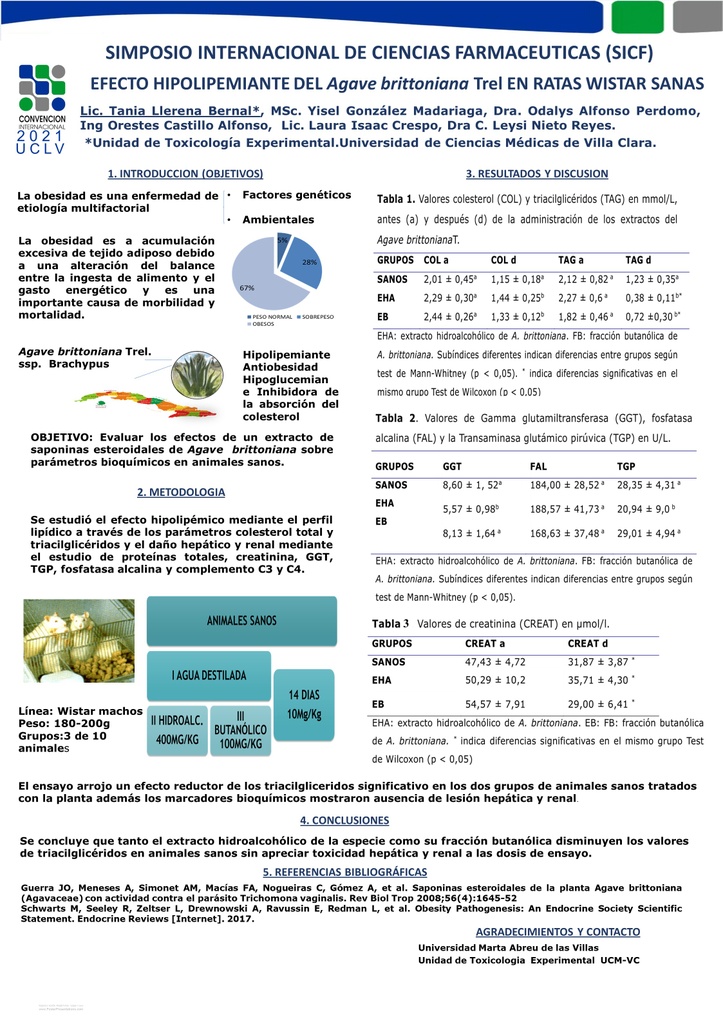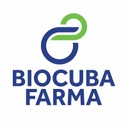Executive Secretary

Simposio Internacional de Ciencias Farmacéuticas
SICF

Resumen
Numerosos estudios demuestran que fitocompuestos activos como las saponinas, contribuyen a mejorar los procesos moleculares asociados
a la obesidad. Las saponinas extraídas de la especie Agave brittoniana T spp brachypus han demostrado tener potencial antiobesidad, sin embargo, no se conoce el efecto de estas en animales sanos. Se realizó un estudio experimental farmacológico empleando ratas Wistar sanas para evaluar el efecto de la especie sobre parámetros lipídicos, hepáticos y renales. Las dosis de400mg/kg de extracto hidroalcohólico y 100mg/kg de su fracción butanólica fueron administradas durante 14 días. El perfil lipídico se evaluó determinando colesterol, TAG y VLDL y se cuantificaron las transaminasas y albúmina plasmática para evaluar lesión hepática y renal, respectivamente. El ensayo arrojó un efecto reductor de triacilglicéridos significativo en los dos grupos de animales sanos que se les administraron los dos productos de la planta. Además, en este
estudio los marcadores bioquímicos evaluados mostraron ausencia de lesión hepática y renal por la administración de los productos. Se concluye que tanto el extracto hidroalcohólico de la especie como su fracción butanólica disminuyen los valores de triacilglicéridos eanimales sanos sin apreciar toxicidad hepática y renal a las dosis de ensayo.
Abstract
Numerous studies demonstrate that active phyto compounds as the saponin, contributes to improve the molecular processes associated to the obesity. The extracted saponin of the species Agave brittoniana T spp Brachypus has demonstrated to have potential antiobesity, however the effect of these is not known in healthy animals. He/she was carried out a pharmacological experimental study using rats healthy Wistar to evaluate the effect of the species it has more than enough parameters lipídicos, hepatic and renal. The doses of 400mg/kg of hydroalcoholic extract and 100mg/kg of their fraction butanolic were administered during 14 days. The lipidic profilewas evaluated determining cholesterol, TAG and VLDL and the transaminases and plasmatic albumin were quantified to evaluate hepatic and renal lesion, respectively. The rehearsal threw an effect reducer of significant triacylglyceride in the two groups of healthy animals that were administered the two products of the plant. Also, in this study the evaluated biochemical markers showed absence of hepatic and renal lesion for the administration of the products. You conclude that so much the extract hydroalcoholic of the species like their fraction butanolic diminish the triacylglyceride values in healthy animals without appreciating hepatic and renal toxicity to the rehearsal doses.
Sobre el ponente

Lic. Tania Llerena Bernal

